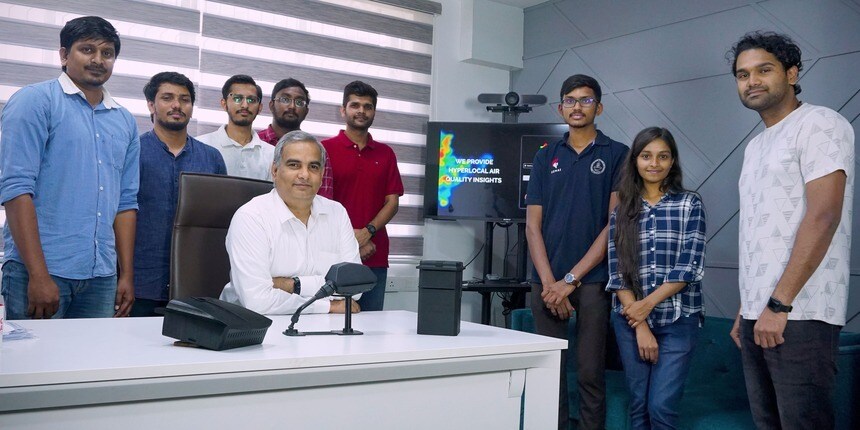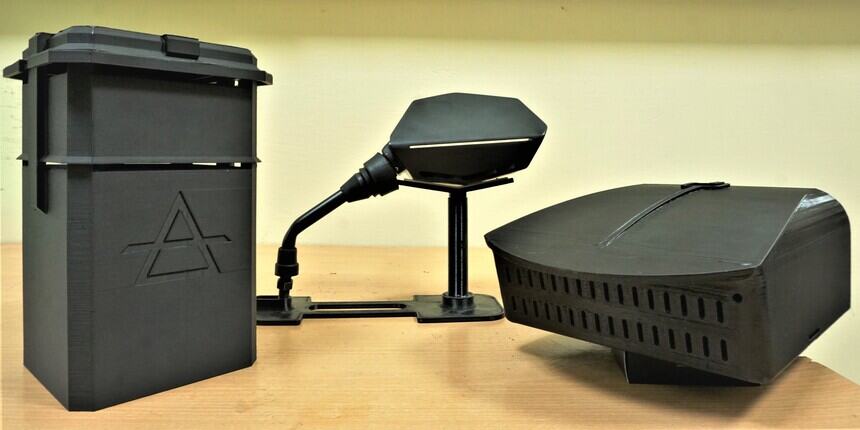IIT Madras researchers develop low-cost method for mobile pollution monitoring
Tanuja Joshi | June 15, 2023 | 06:03 PM IST | 2 mins read
This framework allows pollution sensors mounted on public vehicles to monitor the air quality of an extended area at high spatial and temporal resolutions.

NEW DELHI: Researchers in the Indian Institute of Technology (IIT) Madras have developed data science and IoT-based method for mobile pollution monitoring. This framework, an IIT Madras statement said, allows pollution sensors mounted on public vehicles to monitor the air quality of an extended area at high spatial and temporal resolutions.
By equipping vehicles with low-cost air quality sensors, the researchers have created a network capable of gathering spatiotemporal air quality data. This, IIT Madras said, seeks to enable the mapping of an entire city at high resolution, at the cost of a single reference monitoring station.
Also read| IIT Madras, WayCool Foods partner to offer climate-smart agricultural practices for farmers
The project, named Kaatru, meaning "air" in Tamil, aims to obtain a pan-India hyper-local air quality map, conduct exposure assessments for Indian citizens, and generate data-driven solutions for policy, intervention and mitigation strategies.
The findings of the IIT Madras research has also been published in the peer-reviewed journal Building and Environment, in a paper co-authored by Sathish Swaminathan, Anand Guntuku, Sumeer S, Amita Gupta, and Raghunathan Rengaswamy.
IIT Madras’s Data Science and IoT-based method and effectiveness
The paper details the data science and IoT-based mobile monitoring framework for performing high-resolution spatiotemporal assessments, significant spikes in PM2.5 pollution are during specific times, such as when trucks carrying milk pass through certain areas and during school start and end hours.
The affordability and effectiveness of the IoT-based mobile monitoring network, combined with data science principles, provide unprecedented advantages in gathering hyperlocal insights into air quality, enabling informed mitigation and policy decisions stated Rengaswamy.
Also read| IIT Madras to host ‘Demo Day’ for JEE aspirants on June 24
The IoT mobile monitoring devices developed by the researchers are capable of measuring multiple parameters, including PM1, PM2.5, and PM10, as well as gases like NOx and SOx. The devices can assess road roughness, potholes, and UV index, among other factors. The patented IoT side view mirror design enables the devices to be retrofitted on various types of vehicles, from buses to cars and even two-wheelers.
 Kaatru device - (L-R) - Stationary device, IoT mirror and mobile device (Image source: IIT Madras)
Kaatru device - (L-R) - Stationary device, IoT mirror and mobile device (Image source: IIT Madras)
To validate the reliability of the data collected by the IoT, the researchers conducted two case studies. The first study focused on hyperlocal air quality assessments in a carefully selected region in western Chennai. The study successfully captured subtle variations in PM2.5 concentrations across different locations and roads, providing valuable insights into pollution patterns.
Also read| IIT Madras launches 15 centres of excellence with focus on creating top research establishments
The second case study analysed PM2.5 levels during the high-intensity event of Deepavali. The data collected from the IoT devices was compared to that of a CPCB (Central Pollution Control Board) station, and a high qualitative match was observed, validating the reliability of the mobile monitoring system.
Follow us for the latest education news on colleges and universities, admission, courses, exams, research, education policies, study abroad and more..
To get in touch, write to us at news@careers360.com.